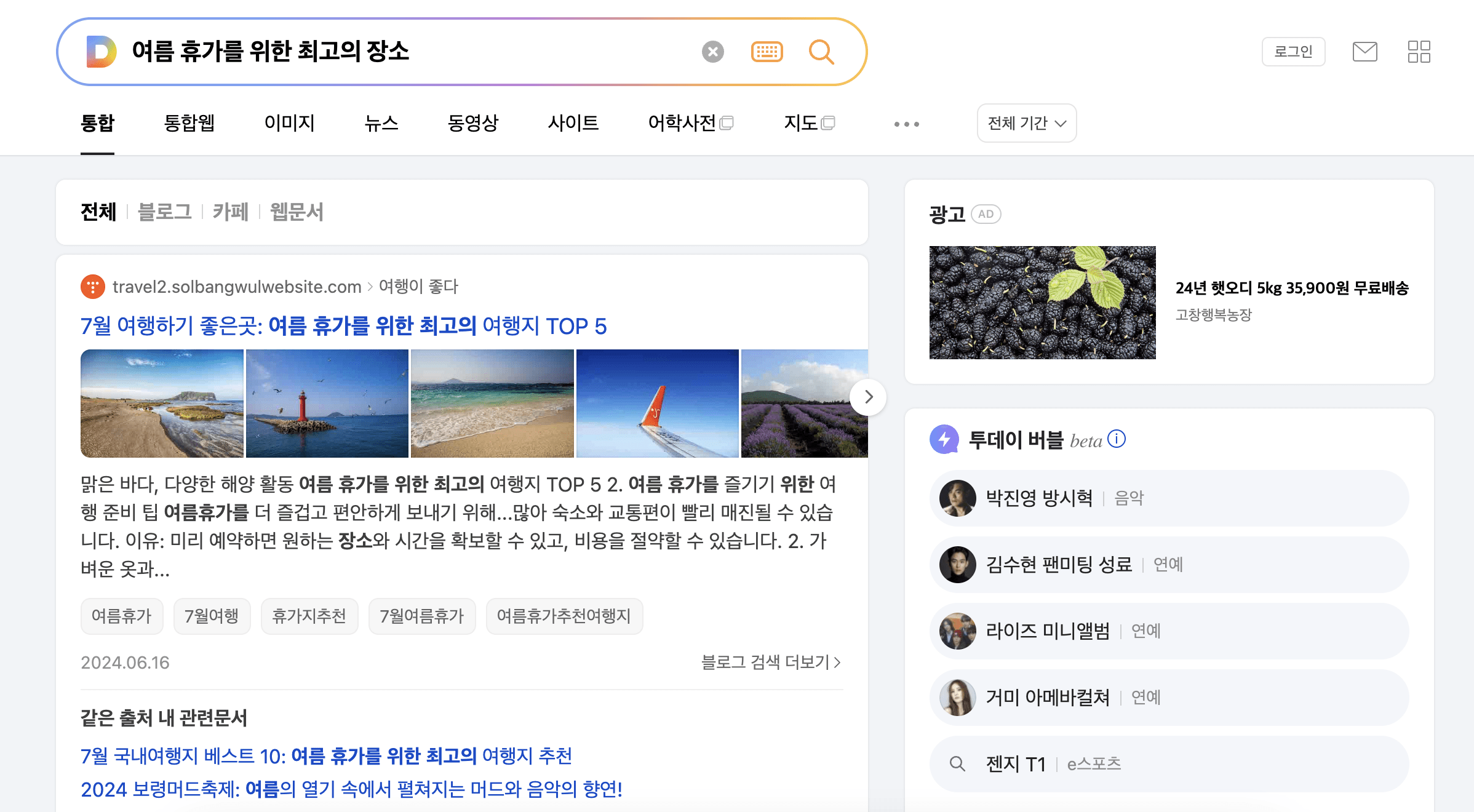Daum Search Engine: Your Guide To The Korean Web & Beyond
Is the digital landscape truly global, or are there pockets of unique innovation and user preference shaping the online experience? In South Korea, the dominance of Naver, and the historical presence of Daum, offer a compelling case study in localized search and the power of tailoring services to specific cultural needs, showing how global giants don't always win the race.
The world of search engines, dominated globally by names like Google, presents a fascinating contrast when viewed through a regional lens. While Google undeniably holds a commanding share of the global market, other players have carved out significant niches by understanding and catering to the specific requirements of their user bases. South Korea, with its high internet penetration and technologically savvy population, is a prime example of this phenomenon. Here, the story of search engines is not solely about Google's all-encompassing reach, but rather, a story about Naver and Daum, the key players who have challenged the global norm and redefined the user experience for millions.
Naver, the undisputed champion of the South Korean search market, has become deeply ingrained in the daily lives of Koreans. This isn't merely a matter of search engine functionality; Naver has evolved into a comprehensive portal, offering a range of services from news and email to shopping and entertainment. This integrated approach has proven highly successful, creating a self-contained ecosystem that keeps users engaged and loyal. Behind Naver's success is a deep understanding of the local market and a willingness to adapt to user preferences in ways that global competitors have sometimes overlooked.
Daum, though currently holding a smaller share than Naver, played a crucial role in shaping the early internet landscape in South Korea. Founded in 1995, Daum was one of the pioneers of the Korean internet, and it quickly gained popularity. Its early success was partly due to the integration of its search engine with the popular email service, Daum.net (formerly Hanmail.net). This early move fostered user loyalty and established Daum as a key player in the online world. Today, Daum continues to operate as a web portal, providing various services and features. It has a substantial user base and remains a significant presence in the Korean digital landscape, albeit smaller than Naver.
Daum's journey, like that of Naver, highlights the importance of localization and understanding the subtleties of the South Korean market. Daum's approach demonstrates the value of focusing on the unique needs and preferences of a specific audience, which is crucial in a world where global giants compete with local players. This approach includes language support, content tailored to local interests, and a user experience that resonates with the cultural nuances of its user base. Daum's strategies showcase how it has attempted to provide a rich and relevant experience that addresses the local demand, although the global landscape has become increasingly competitive.
The story of search engines in South Korea is also a story about the evolving nature of the internet. The early success of Daum and the subsequent rise of Naver suggest that search engines are not simply tools for finding information. They are gateways to a broader digital experience, offering a spectrum of services designed to meet the diverse needs of users. This approach has allowed Naver to build a loyal user base and thrive, whilst Daum has adapted to the changing digital landscape.
This is where the importance of understanding the digital landscape becomes evident. A search engine isn't just about algorithms and indexing; it's also about content, user experience, and cultural relevance. This is where the local players, like Naver, can often outperform the global giants. They are not just providing a service; they're crafting an experience that caters to the needs and preferences of their audience.
The significance of tracking tools for SEO is a critical element in the digital marketing world, particularly for those who want to optimize their website and track its progress in top search engines. When optimizing a website for search engines, SEO specialists rely on tools to monitor their website's performance. This enables them to identify areas of improvement and tailor their strategies accordingly. SEO tools help track keyword rankings, website traffic, and user behavior, all of which are essential to understand how the website is performing in search engine results.
According to Nielsen KoreanClick, Naver holds the top position in the search engine landscape in South Korea. This highlights Naver's dominance and its deep penetration into the Korean market. This position showcases Naver's ability to understand and meet the needs of the Korean users, which are pivotal to its success in the digital world.
In contrast, Daum holds a smaller but still significant share of the search engine usage in South Korea. Daum's position in 2024, accounted for 1.39 percent of search engine usage in South Korea. Although its market share is smaller compared to Naver, Daum remains a key player in the Korean digital world. While Daum has been losing ground in recent years, it continues to play a significant role in providing search services and contributing to the diversity of the Korean digital landscape.
Daum offers a range of services, including cloud storage (Daum Cloud), a dictionary app (Daum Dictionary), and a map service (Daum Maps). These tools are designed to cater to the varied demands of its user base. This has assisted them in their digital transformation. The variety of offerings distinguishes Daum as a comprehensive portal. It has a diverse ecosystem of services that meet the needs of a wide audience.
When Daum was first introduced, it was like Google, a search engine. Its transformation has been shaped by its merger with the email service Daum.net or Hanmail.net, which has helped it expand its popularity. After its merger with the email service, Daum has grown into a portal that provides various services and has had an impact on how Koreans connect and share information. The integration of different services has helped Daum gain a big user base and remain relevant in the highly competitive digital landscape.
Daum's user base and its service offerings highlight its role in the digital landscape. Services like Daum Dictionary and Daum Maps, are used by individuals and businesses to find useful information, such as dictionaries or maps. These tools are designed to improve the user experience, which is a cornerstone of Daum's strategy. It demonstrates how Daum has stayed up-to-date with user expectations by offering various functions that address different digital needs.
Daums history in the Korean market demonstrates how it has become one of the main players in the Korean web. Its early growth was supported by its search engine and the merger with its email service. Daum has grown into a comprehensive portal that provides various services. The transformation shows Daum's ability to adjust to the market by using innovation and understanding user needs. The service is a mix of search engine functionality and is a digital hub for many Koreans.
Daum is an integral part of the South Korean online world and offers a diverse range of services that go beyond basic search functionality, including cloud storage, dictionary apps, and map services. Daum's approach underscores the value of localization, user-centric design, and adaptation to changing user expectations, even in the face of global competition. As a result, Daum continues to serve as a key example of how a digital entity can navigate the global digital landscape.
Naver's success is a direct result of understanding local needs and preferences. It has created a network of interconnected services that allow users to stay engaged. The company's capacity to customize content, provide local information, and create a user-friendly interface has made it the preferred search engine for many Koreans. This shows how digital platforms may be customized to meet the distinct requirements of diverse cultural environments.
The story of Daum and Naver in South Korea serves as a reminder that the digital world is diverse and dynamic. The success of both platforms demonstrates that user experience, content, and cultural relevance are just as important as technological innovation. Both Daum and Naver have made a significant impact on the digital landscape, with Daum paving the way for the development of a locally relevant internet in the face of global competition. Their stories highlight how digital platforms may flourish by focusing on user needs and cultural relevance.
In the vast digital arena, the ability to provide specialized services based on local needs is critical. Daum's approach shows how crucial it is to consider consumer expectations and adapt to cultural nuances, even in the face of worldwide competition. Both Daum and Naver offer an excellent example of how the internet can be influenced by local players.
The story of Daum is one of transformation and adjustment to shifting market circumstances. Daum has demonstrated an extraordinary capacity to stay current by offering different services and changing its approach. The company's journey is a fascinating look at how a digital platform can overcome challenges and succeed in the complex digital environment by continuously reinventing itself. Daum's ability to change demonstrates its tenacity and commitment to adapting to the needs of its users.
The popularity of Naver, the most often used search engine in Korea, is a result of its capacity to adapt to Korean internet users' expectations. The platform has established itself by providing a wide range of integrated services, including search, news, email, and e-commerce. This integrated approach has made it an essential component of the daily lives of millions of Koreans. It is also a reflection of Naver's strategy for understanding local tastes and providing a user experience that is tailored to cultural norms.
Daum's journey, in particular, demonstrates its capacity to adjust to market developments by offering various services and constantly changing its strategy. Daum's persistence illustrates its dedication to meeting the needs of its consumers. By providing a range of options, Daum shows its determination to meet the evolving digital demands of its audience.
In a world dominated by technological behemoths, Naver and Daum have carved out their own territories by putting local needs first. Both Daum and Naver are examples of how a digital platform can succeed by understanding local preferences, tailoring content, and offering a user experience that appeals to cultural nuances. Their achievements highlight the value of diversity and adaptation in the digital arena.
Daum's history and the continuing success of Naver in South Korea highlight the importance of local relevance and cultural understanding in the digital world. These businesses have succeeded by adapting to the distinct needs of the local market. Their ability to customize the user experience and provide services that appeal to local tastes has been critical to their achievements. Both companies provide useful lessons on how digital platforms may flourish by prioritizing user experience and cultural sensitivity.


